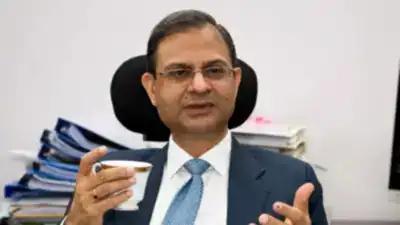India's Steadfast Commitment to Economic Reforms
Despite the rising tide of protectionism globally, India remains unwavering in its commitment to market reforms, as stated by Sanjay Malhotra, the Governor of the Reserve Bank of India. Speaking at a recent event, Malhotra underscored the liberalization measures in key sectors such as defence, insurance, petroleum, telecom, and space.

Market-Oriented Policies: A Consistent Theme
Malhotra highlighted that market-oriented policies have been a consistent theme across successive Indian governments. "While the pace and specific focus of reforms may have varied from time to time, the commitment to a more market-oriented economic structure has not changed," he remarked.
Foreign Direct Investment and Economic Growth
The governor pointed out that nearly all sectors are now open to 100% foreign direct investment (FDI), with about 90% of FDI coming through the automatic route. This has positioned India as a dynamic powerhouse of opportunities, innovation, and sustainable growth.

Monetary Policy and Inflation Control
Malhotra credited the accommodative monetary policy for taming inflation and supporting growth, noting a cumulative 50 basis point reduction in policy rates this year. The Indian economy has shown remarkable resilience, with an average growth rate of 8.2% over the past four years.
India's Global Economic Position
From being the tenth-largest economy a decade ago, India has climbed to the fifth-largest and ranks third by purchasing-power parity. "Even nominally, we are poised to become the third largest economy shortly," Malhotra said, reiterating India's goal of becoming a developed economy by 2047.
External Balances and Foreign-Exchange Reserves
India's current account deficit remains manageable at 1.3% of GDP, and the rupee has shown resilience compared to other emerging-market currencies. As of April 18th, India's foreign-exchange reserves stood at a robust $686.1 billion.









Comments